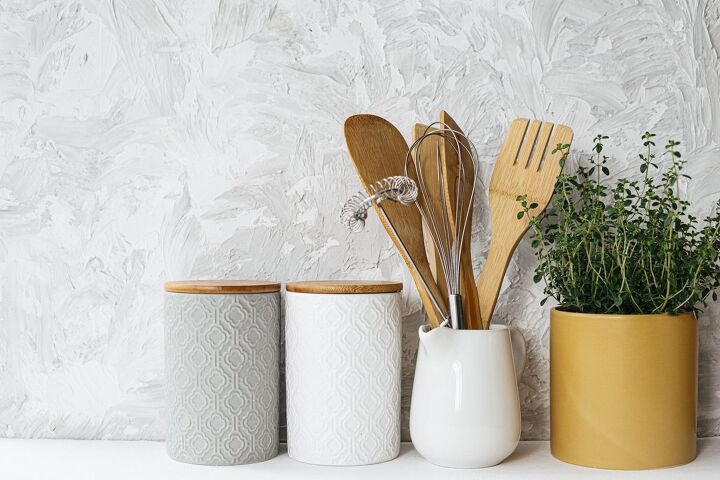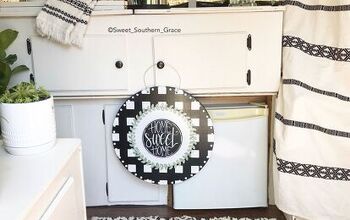10 Frugal Skills You Need to Save Money and Live the Good Life

Waste neither time nor money, but make the best use of both. Without industry and frugality, nothing will do, and with them everything.” ~ Benjamin Franklin
You can do a lot with money.
In fact, you can outsource almost your entire life.
Get someone else to cook for you, to clean for you, to do just about anything for you.
But if you’re one of us mere mortals who doesn’t have unlimited funds, then saving money on everyday expenses frees up money to spend on things that really matter and give us joy.
Here are 10 of the essential skills that will save you money.
Essential Frugal skills
1. PLANNING AND ORGANISATION
It is pretty darn hard to be frugal without the ability to plan ahead and be organised.
Budgeting your money effectively requires you to set goals, organise your finances and save up for things.
To save money on the groceries, you need to menu plan.
To save money on anything you buy requires you to shop around in advance and keep an eye out for sales.
Your home and car need to be maintained regularly to save on costly repairs.
Take the time to set up household systems, time management systems and household management systems and other organisational systems to save you time, money and stress.
2. FINANCIAL MANAGEMENT
It’s no surprise that managing your money is an essential frugal skill.
Good financial management keeps you out of debt, reduces your stress and allows you to reach your financial goals.
Budgeting doesn’t have to be complicated. It’s actually just a matter of prioritising.
3. CREATIVE THINKING
It’s easy to go out and buy something to fill a need or solve a problem.
It’s much more satisfying to reimagine a frugal alternative.
Reclaiming, reusing, recycling and repurposing is an art form that not only save you money, but it’s a whole heap of fun.
Pinterest is a great place for repurposing inspiration and you can check out my repurposing board here.
The trick to repurposing is to look at your problem creatively from two angles:
- How can I solve this with the stuff I have?
- How can I reuse this instead of throwing it away?
Then get creative.
4. COOKING
Groceries are the biggest household expense after the house and car repayments. Which is why saving money here really pays off.
You can make HUGE savings on your grocery budget by learning how to cook fresh food from scratch.
Not only that, being able to cook wholefood food from scratch is also essential for a healthy, happy life.
Check out the recipe section of this blog for frugal meal ideas.
While we’re on the subject of cooking, there’s a related frugal skill that will also save you money and that’s preserving.
Preserving produce when it’s in season and cheap will save you money, regardless of whether you grow what you’re preserving or buy it. And it doesn’t have to be hard. It can be as simple as freezing fruit and vegetables or making simple jams and chutneys.
5. SMART SHOPPING
You’ve worked hard to earn your money. Now you want to be as savvy as you can when spending it.
Ways to shop smart include:
- Shopping second-hand
- Comparing prices
- Shopping the sales
- Haggling
6. Do It Yourself
The other day I spent $90 on the plumber. He changed a single tap washer.
In our defence, we tried and couldn’t do it ourselves. The darn thing was stuck. Even the plumber had trouble and there was a whole lot of swearing coming from our shower stall before he emerged triumphantly.
I would have preferred to keep the $90 in my pocket, not his.
Sometimes it’s just smarter to outsource than DIY. Electrical work should definitely be handled by a qualified pro.
However, the more skills you learn, the less you have to rely on others to do it for you and pay a premium for it.
When it comes to DIY, don’t just think of home maintenance and renovations though.
You can DIY your own gifts, make your own cleaners, make your own soap, make your own condiments.
7. SEWING AND OTHER HANDICRAFTS
I know people who will throw away a perfectly good shirt because a button has come off.
That’s a heck of a lot of money to waste for a 2-minute job.
Even if you never want to make your own clothes, being able to mend them will save you money. Being able to make adjustments to store-bought clothes will save you even more.
Increase your skills and save on household linens and gifts.
Sewing isn’t the only craft that is useful. Another one is woodwork.
My husband has made several pieces of furniture for our house at a fraction of the cost of buying ready-made furniture.
Other great crafts include knitting, crocheting, painting, card making, jewellery making, basket making, quilting, cake making just to name a few.
8. GARDENING
You CAN be frugal without ever doing a jot of gardening.
But there are a lot of good reasons to sink your hands in the soil.
Growing your own food, even if it’s only a few herbs on a windowsill, saves you money on the groceries and empowers you with the ability to truly feed yourself.
Growing indoor plants is one of the best ways to purify the air inside your home (it’s more toxic than you think).
Even having a scattering of petunias in pots around the front door makes a house a home, gets us closer to nature and increases our happiness.
9. MAINTAINING WHAT YOU OWN
Someone (who shall remain nameless for sake of familial harmony) broke the band on their wristwatch.
‘You can fix that easily enough,” I said.
‘It didn’t cost much. It’s not worth it.’
It’s not worth it.
Four and a half little words that lead to a whole world of landfill and a lot of wasted money too.
The problem isn’t that we love stuff too much. The problem is we don’t love our stuff enough.
Being able to maintain what you own and fix it rather than replace it saves you money, but it also saves the planet.
Maintenance covers a lot of ground. Here are a few examples:
Around the home
- Change tap washes
- Clear drains
- Clear gutters
- Weeding, pruning, mowing
- Pest control
- Clean carpet and upholstery
- Repair appliances, toys, furniture and other household goods.
- Pet grooming
Car
- Change oil and oil filter
- Change spark plugs
- Change tires
- Wash and wax
- Change wiper blades
Self
- Cut hair
- Facials, manicures, waxing etc.
- Exercise
- Eat healthily
- Entertain yourself
10. BARTERING
Skill swapping or good old-fashioned bartering can fill a skill deficit without having to fork out a heap of money for a service.
My neighbour and I barter stuff and it works out well for both of us.
My father used to barter zucchinis from his veggie patch and homebrew beer.
You will have many skills that you can use as currency. Think of the elderly lady who advertised to wash and iron clothes in exchange for electrical work.
Look for local bartering groups on Facebook and Gumtree, or Google bartering websites to see if you can get what you need without paying out money.
Having a host of skills not only saves you money, it means you’re more independent. That’s good for your pride and good for the soul.






















Comments
Join the conversation